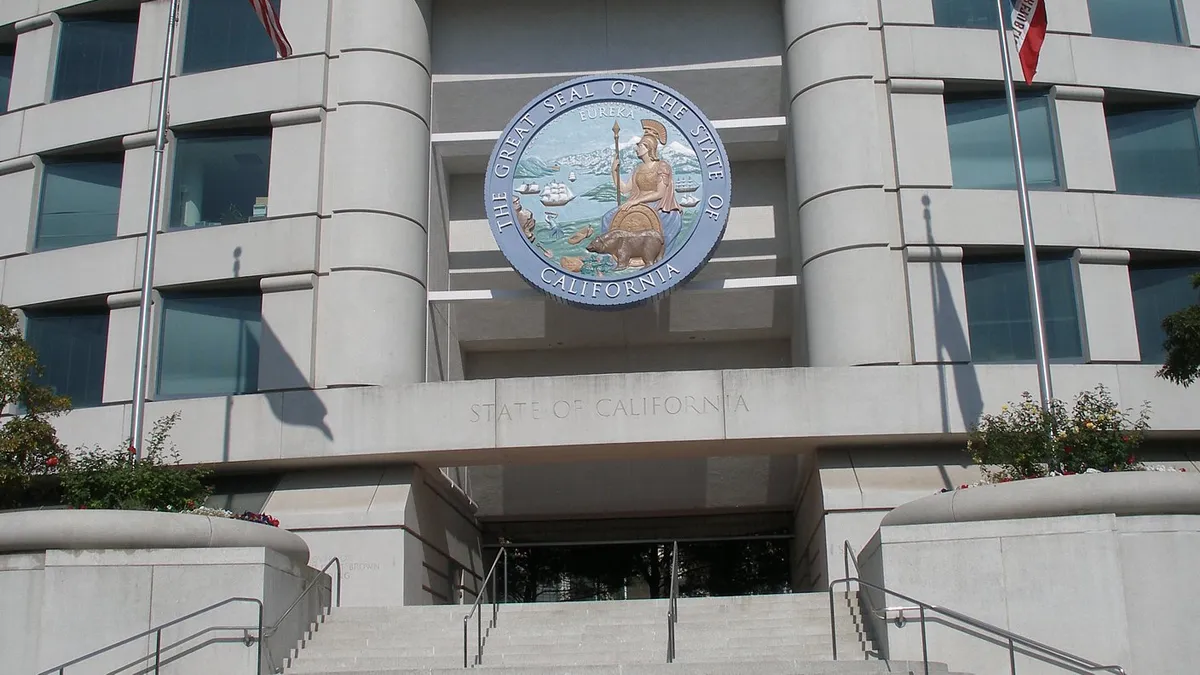Dive Brief:
-
The California Public Utilities Commission (PUC) has denied challenges to the state’s revised net metering policies, known as NEM 2.0, the Desert Sun reports.
-
California’s three investor owned utilities, along with The Utility Reform Network (TURN) and the Coalition of California Utility Employees, challenged NEM 2.0, seeking a rehearing.
- The PUC decision made minor changes to NEM 2.0 but otherwise let the program stand as is, saying that good cause was not established to grant rehearing.
Dive Insight:
The PUC in January revised the state’s net metering policies in an effort to make them more equitable across all customer classes as part of a 2013 bill directing them to develop a net metering sucessor tariff.
The successor tariffs retained many of the basic features of the existing net metering tariff, but added the requirement that new tariff customers pay an interconnection fee, pay a non-bypassable charges on each kWh consumer, and pay residential time-of-use rates. The net metering tariff will undergo scrutiny again in 2019.
The PUC modified its original language in NEM 2.0 to clarify its explanation in connection with achieving sustainable program growth, but otherwise reaffirmed the plan as originally put forward.
In the challenge, some parties argued that NEM 2.0 would result in unlawful cost-shifting and cross subsidization. In its decision the PUC noted that “cost-shifting, subsidies, and similar incentive mechanisms are not inherently unlawful,” but are tools used to support state programs and objectives.
The PUC also noted that “it is impossible to reach any definitive conclusion regarding the extent or amount of any cost-shifting under NEM based on the record in this proceeding.”
The decision says that there is insufficient evidence “to estimate the amount of any cost-shift with any measure of certainty” because “at present much more is known about total costs than total benefits.” The regulators concluded that their decision “approached cost-shifting concerns as an ongoing program consideration.”
The utilities could appeal the decision, but the Solar Industry Magazine noted the California Solar Energy Industries Association believes that is unlikely because the chances for success are low.













